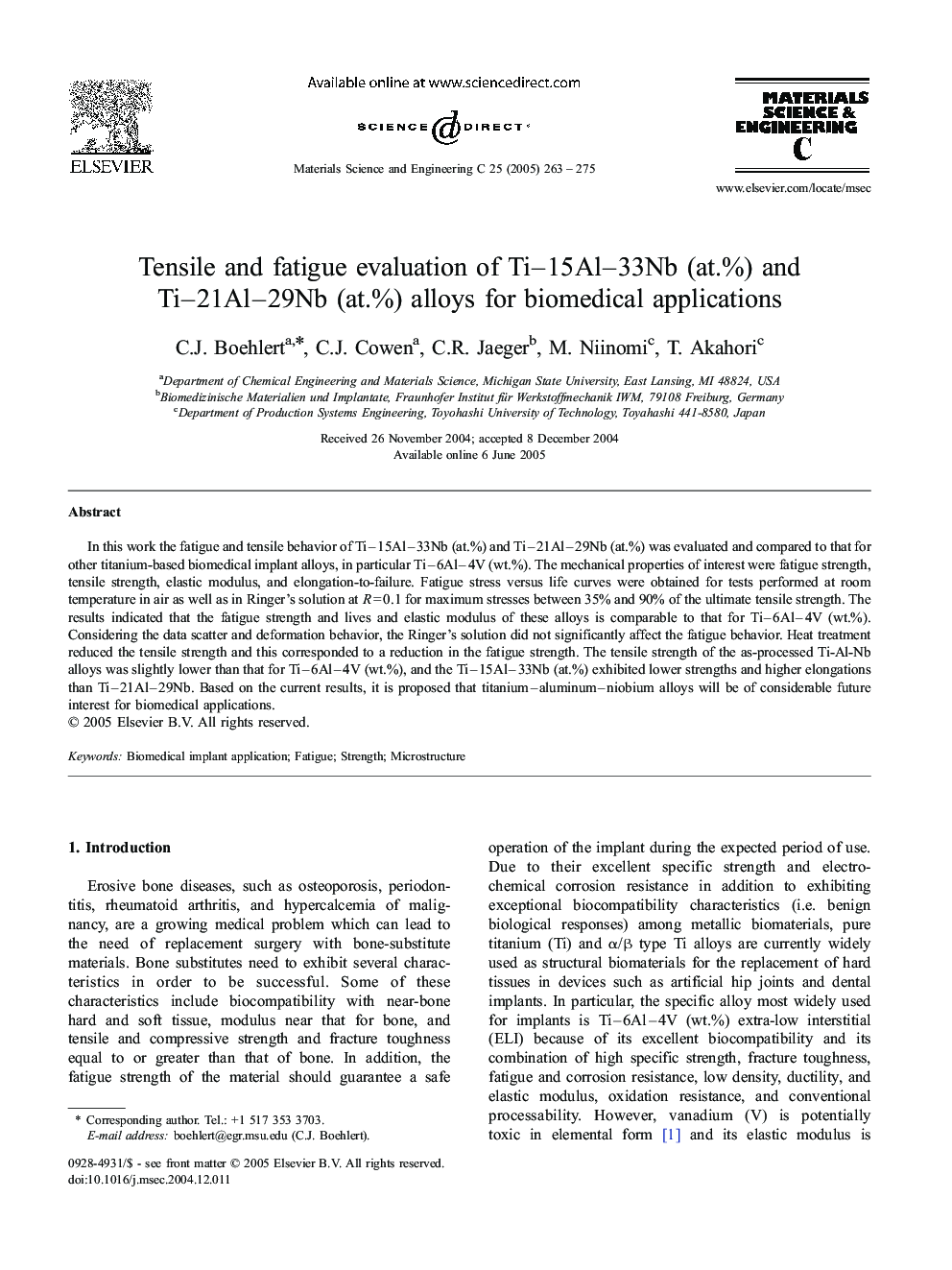| Article ID | Journal | Published Year | Pages | File Type |
|---|---|---|---|---|
| 10615122 | Materials Science and Engineering: C | 2005 | 13 Pages |
Abstract
In this work the fatigue and tensile behavior of Ti-15Al-33Nb (at.%) and Ti-21Al-29Nb (at.%) was evaluated and compared to that for other titanium-based biomedical implant alloys, in particular Ti-6Al-4V (wt.%). The mechanical properties of interest were fatigue strength, tensile strength, elastic modulus, and elongation-to-failure. Fatigue stress versus life curves were obtained for tests performed at room temperature in air as well as in Ringer's solution at RÂ =Â 0.1 for maximum stresses between 35% and 90% of the ultimate tensile strength. The results indicated that the fatigue strength and lives and elastic modulus of these alloys is comparable to that for Ti-6Al-4V (wt.%). Considering the data scatter and deformation behavior, the Ringer's solution did not significantly affect the fatigue behavior. Heat treatment reduced the tensile strength and this corresponded to a reduction in the fatigue strength. The tensile strength of the as-processed Ti-Al-Nb alloys was slightly lower than that for Ti-6Al-4V (wt.%), and the Ti-15Al-33Nb (at.%) exhibited lower strengths and higher elongations than Ti-21Al-29Nb. Based on the current results, it is proposed that titanium-aluminum-niobium alloys will be of considerable future interest for biomedical applications.
Keywords
Related Topics
Physical Sciences and Engineering
Materials Science
Biomaterials
Authors
C.J. Boehlert, C.J. Cowen, C.R. Jaeger, M. Niinomi, T. Akahori,
